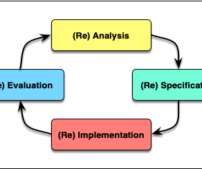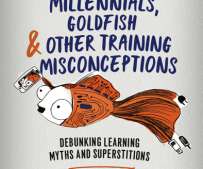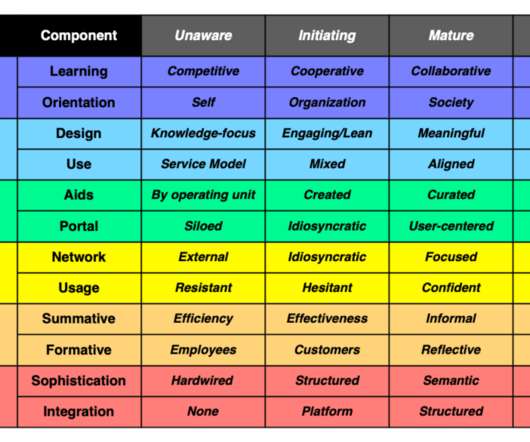Social Media Metrics
Clark Quinn
FEBRUARY 1, 2011
I continue to get asked about social learning metrics. Until we get around to a whitepaper or something on metrics, here’re some thoughts: Frankly, the problem with Kirkpatrick (sort of like with LMS’ and ADDIE, *drink*) is not in the concept, but in the execution. Frankly, even activity is a metric.











































Let's personalize your content